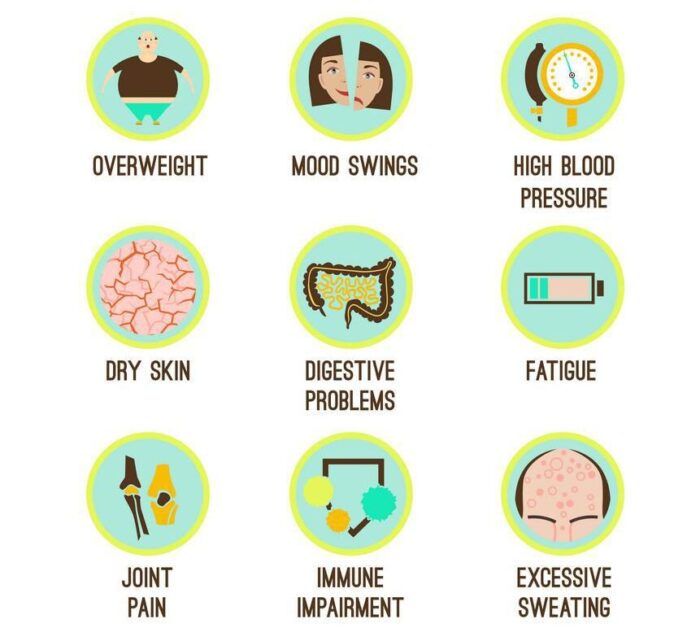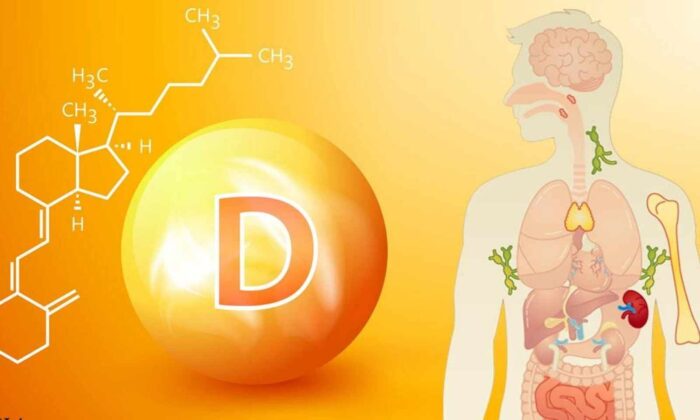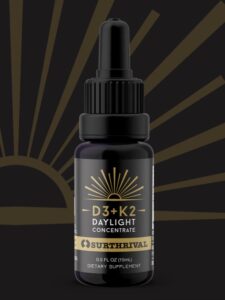Vitamin D is often referred to as the “sunshine vitamin” due to its synthesis in the skin when exposed to sunlight. However, many people fail to obtain adequate levels of this essential nutrient, leading to potential deficiencies.
Common Consequences Of Vitamin D Deficiency:

- Weakened Bones: Vitamin D plays a crucial role in calcium absorption and bone health. A deficiency can lead to weakened bones, increased risk of fractures, and a condition called osteomalacia in adults or rickets in children, which can cause soft and brittle bones.
- Muscle Weakness: Vitamin D deficiency may contribute to muscle weakness and impaired muscle function. It can affect both skeletal muscles and the muscles involved in vital functions like breathing and maintaining posture.
- Increased Risk of Osteoporosis: Inadequate vitamin D levels can contribute to the development of osteoporosis, a condition characterized by low bone density and increased susceptibility to fractures.
- Impaired Immune Function: Vitamin D is crucial for a well-functioning immune system. Deficiency can impair immune function, making you more susceptible to infections, including respiratory infections, autoimmune disorders, and chronic diseases.
- Mood Disorders: Low levels of vitamin D have been associated with an increased risk of mood disorders such as depression and seasonal affective disorder (SAD). Vitamin D plays a role in regulating mood and serotonin levels in the brain.
- Fatigue and Low Energy: Vitamin D deficiency can contribute to feelings of fatigue and low energy levels, affecting your overall vitality and well-being.
- Increased Risk of Chronic Diseases: Research suggests that vitamin D deficiency may be linked to an increased risk of various chronic conditions, including cardiovascular disease, diabetes, certain cancers, autoimmune disorders, and neurodegenerative diseases.
- Impaired Cognitive Function: Adequate vitamin D levels are important for optimal brain function. Deficiency has been associated with cognitive decline, impaired memory, and an increased risk of neurological disorders such as Alzheimer’s disease.
- Compromised Dental Health: Vitamin D deficiency has been linked to dental problems such as tooth decay (cavities) and gum disease.
- Weakened Immune Response: Vitamin D plays a vital role in modulating the immune system’s response to infections and inflammation. Deficiency can lead to a compromised immune response, affecting the body’s ability to fight off pathogens effectively.
It’s important to note that vitamin D deficiency can be diagnosed through a blood test, and if you suspect you may be deficient, it is advisable to consult with a healthcare professional to get tested.
Recent research has shed light on the critical role of vitamin D in supporting both brain and body health. By incorporating vitamin D supplementation into your daily regimen, you can unlock a fascinating array of transformations.
15 Significant Changes That Can Occur When You Prioritize Vitamin D

- Enhanced Cognitive Function: Vitamin D has been linked to improved cognitive performance, memory, and attention span. Adequate levels of vitamin D support optimal brain function, potentially reducing the risk of cognitive decline.
- Mood Elevation: Low vitamin D levels have been associated with an increased risk of depression and mood disorders. Supplementing with vitamin D may help alleviate symptoms of depression and improve overall mood.
- Boosted Immune System: Vitamin D plays a vital role in modulating the immune system. Adequate levels of vitamin D can enhance immune function, reducing the risk of infections and autoimmune disorders.
- Strengthened Bones: Vitamin D is crucial for calcium absorption and bone health. By supplementing with vitamin D, you can improve bone density, reducing the risk of fractures and osteoporosis.
- Reduced Risk of Cardiovascular Disease: Studies have suggested that vitamin D deficiency is associated with an increased risk of cardiovascular diseases such as hypertension, heart attack, and stroke. By maintaining optimal vitamin D levels, you can promote heart health.
- Improved Muscle Strength: Vitamin D plays a role in muscle function and strength. Supplementing with vitamin D may enhance muscle performance and reduce the risk of muscle weakness and falls, especially in older adults.
- Regulation of Blood Sugar Levels: Vitamin D has been linked to improved insulin sensitivity and blood sugar regulation. By incorporating vitamin D into your daily regimen, you may reduce the risk of developing type 2 diabetes.
- Reduced Inflammation: Chronic inflammation is a contributing factor to various health conditions. Vitamin D has anti-inflammatory properties, and supplementation may help reduce inflammation markers in the body.
- Lowered Risk of Certain Cancers: Adequate vitamin D levels have been associated with a decreased risk of certain cancers, including colorectal, breast, and prostate cancers. Vitamin D supplementation may play a preventive role in cancer development.
- Enhanced Sleep Quality: Vitamin D deficiency has been linked to sleep disturbances. By maintaining sufficient vitamin D levels, you can support healthy sleep patterns and improve overall sleep quality.
- Support for Respiratory Health: Vitamin D has been found to have a protective effect against respiratory infections, including the flu and common cold. Supplementing with vitamin D may reduce the risk and severity of respiratory illnesses.
- Promoted Weight Loss: Some studies suggest that vitamin D supplementation, when combined with a healthy diet and exercise, may aid in weight loss efforts. Vitamin D may help regulate appetite and support metabolic function.
- Improved Fertility: Vitamin D has been associated with improved fertility in both men and women. Adequate vitamin D levels may enhance reproductive health and increase the chances of successful conception.
- Healthy Pregnancy Outcomes: Pregnant women with sufficient vitamin D levels have a lower risk of complications such as gestational diabetes, preeclampsia, and preterm birth. Vitamin D supplementation is crucial for supporting a healthy pregnancy.
- Longevity and Overall Well-being: By prioritizing vitamin D supplementation, you can contribute to your long-term health and overall well-being. Vitamin D plays a multifaceted role in various body systems, supporting longevity and vitality.
Incorporating vitamin D supplementation into your daily regimen can have a profound impact on both your brain and body. Remember, while vitamin D supplementation is beneficial, it should not replace a balanced diet and a healthy lifestyle.

Thankfully, vitamin D can also be found in various natural food sources. Here are some examples of foods that are good sources of vitamin D:
- Fatty Fish: Fish such as salmon, trout, mackerel, and sardines are excellent sources of vitamin D. Consuming these fish, particularly when they are exposed to sunlight during their life cycle, can provide a significant amount of this vitamin.
- Cod Liver Oil: Cod liver oil is a potent source of vitamin D. It is available in supplement form and can be taken orally.
- Egg Yolks: Egg yolks contain small amounts of vitamin D. Including eggs in your diet can contribute to your overall vitamin D intake.
-
Mushrooms: Some types of mushrooms, such as shiitake and maitake, contain vitamin D. However, their levels can vary depending on the mushroom’s exposure to sunlight or if they have been artificially enriched with vitamin D.
Click here to get Vitamin D3+k2 from Surthrival. This vitamin D source includes k2 which increases bioavailability.
Use the discount code: healthywildfree at checkout for a discount! - Beef Liver: Beef liver is a nutrient-dense food that provides various vitamins and minerals, including vitamin D. However, it is important to consume liver in moderation due to its high vitamin A content.I take a supplement called Organ complex from Paleovalley, click here to get 15% off this supplement.
It’s worth noting that obtaining sufficient vitamin D from natural food sources alone can be challenging, especially for individuals who have limited sun exposure or specific dietary restrictions. In such cases, vitamin D supplementation may be necessary to meet recommended levels.
Take charge of your health and experience the incredible benefits of Surthrival Vitamin D3 + K2 Daylight Concentrate Liquid. Don’t miss out on this powerful combination that supports your body’s optimal function and well-being. Here’s your call to action:
Vitamin D3 and K2 work synergistically to promote optimal calcium absorption, support bone health, boost immune function, and promote cardiovascular health. Surthrival’s liquid formulation ensures easy absorption and bioavailability, allowing your body to readily access the nutrients it needs.
Their Vitamin D3 + K2 Daylight Concentrate Liquid undergoes rigorous testing to ensure purity, potency, and effectiveness. Rest assured that you’re investing in a premium product backed by scientific research.
Click Here To Purchase Surthrival Vitamin D3+K2 Liquid Concentrate
Use the discount code: Healthywildfree to get a discount on your purpose..
Additionally, spending time outdoors and allowing your skin to be exposed to sunlight (with proper sun protection) can stimulate the production of vitamin D in your body. However, the ability to produce vitamin D from sunlight depends on factors such as geographical location, time of year, skin pigmentation, and sunscreen use.
In conclusion, the evidence is clear, supplementing vitamin D is critically important for supporting optimal brain and body health. By incorporating this essential nutrient into your daily regimen, you are positively impacting your cognitive function, mood, immune system, bone strength, cardiovascular health, and much more.
So, seize the opportunity to harness the power of vitamin D and take proactive steps towards optimizing your brain and body health. Check out Surthrival Vitamin D3+K2 and get all the amazing benefits listed about.





